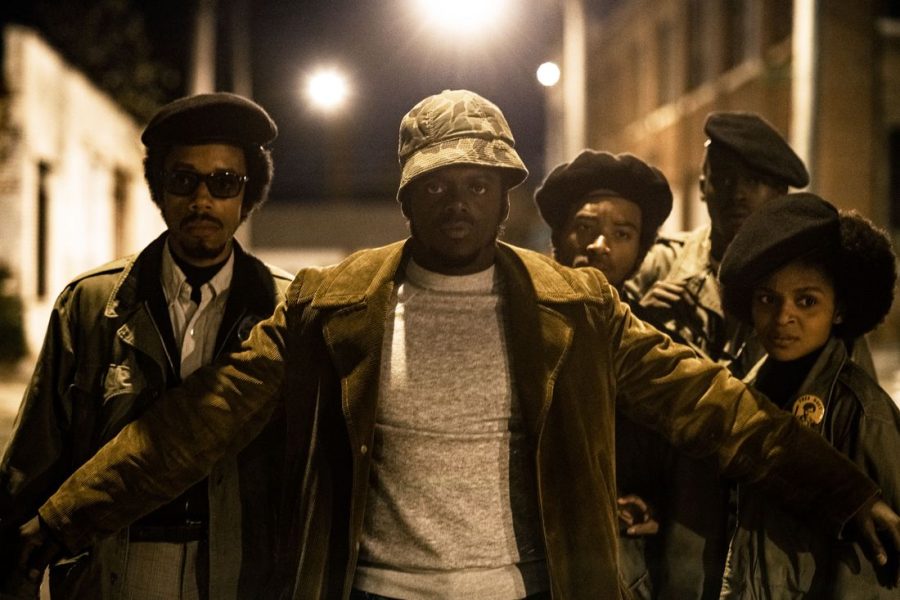‘Judas and the Black Messiah’ is more than a biopic
Photo by Glen Wilson/Warner Bros.
Daniel Kaluuya as Fred Hampton in the center. “Judas and the Black Messiah” is in theatres now and streaming digitally via HBO Max.
American biographical-drama “Judas and the Black Messiah,” tells the story of Black Panther chairman Fred Hampton through the eyes of fellow Panther and FBI informant William O’Neal.
Released in select theatres and digitally on HBO Max Friday, “Judas and the Black Messiah” is directed by Shaka King and stars LaKeith Stanfield (“Sorry to Bother You,” “Knives Out”) as O’Neal and Daniel Kaluuya (“Get Out,” “Queen and Slim”) as Hampton.
Much can be said about the performances from Stanfield and Kaluuya, with the latter recently announced as a nominee for best supporting male actor at the Golden Globes and Screen Actors Guild for his role as Hampton.
Kaluuya’s portrayal of Hampton is as hypnotic as its source material: A man whose charisma and tenacity helped shape civil rights movements for years and reminds us that the power of one’s words can breathe immortality into our finite lives as humans.
While Kaluuya’s dominating performance forced my attention, it was Stanfield’s depiction of O’Neal that kept me intrigued.
“Judas and the Black Messiah” is not a standard biopic, as the story unfolds through the eyes of O’Neal, who struggles to define his identity and maintain his poise under pressure.
O’Neal is thrust into hair-raising situations, and the discomfort shows across Stanfield’s performance, not just in his words but also in his movements. Stanfield’s adjustments from nearly caving under pressure to laughing with relief after realizing his lies were believed are some of the finest moments of his young acting career.
The film also shines visually, with each scene providing a militant undertone to its viewers. Camouflage-green and brown colors are shown in almost every scene, whether it is the paint on the wall or a jacket’s color. Combining this with soft-lighting adds to the revolutionary vibe of the two-hour production.
The film’s sound also shines as scenes in “Judas and the Black Messiah” progress with a unique score helmed by jazz musicians Mark Isham and Craig Harris. The jazz adds insight and empathy to Black Americans’ struggles while simultaneously highlighting the evil and pressure surrounding O’Neal.
Additionally, the film features the original song, “Fight For You” by Vallejo-born singer H.E.R, who has also earned a Golden Globe nomination for the best original song. This movie is also accompanied by an album titled “Judas and the Black Messiah: The Inspired Album,” which features prominent Black artists like JAY-Z, Nas, A$AP Rocky and the late Nipsey Hussle.
The beauty of the storytelling in “Judas” is that it’s not just about Hampton or O’Neal, but the story that started it all: The FBI’s relentless fight against populism in the 1960s and 1970s. Ex-FBI Director J. Edgar Hoover’s infamous counterintelligence program, known to many as COINTELPRO, planted the seeds which grew to the downfall of Hampton and the Black Panther Party.
Viewers unfamiliar with Hampton’s life events now have an intriguing, phenomenally acted and written story to educate themselves this Black History Month.
Those familiar with his story may not wish to see the tragic events unfold before them but will be delighted by the creative execution of tragic events that continue to parallel Black history today.

